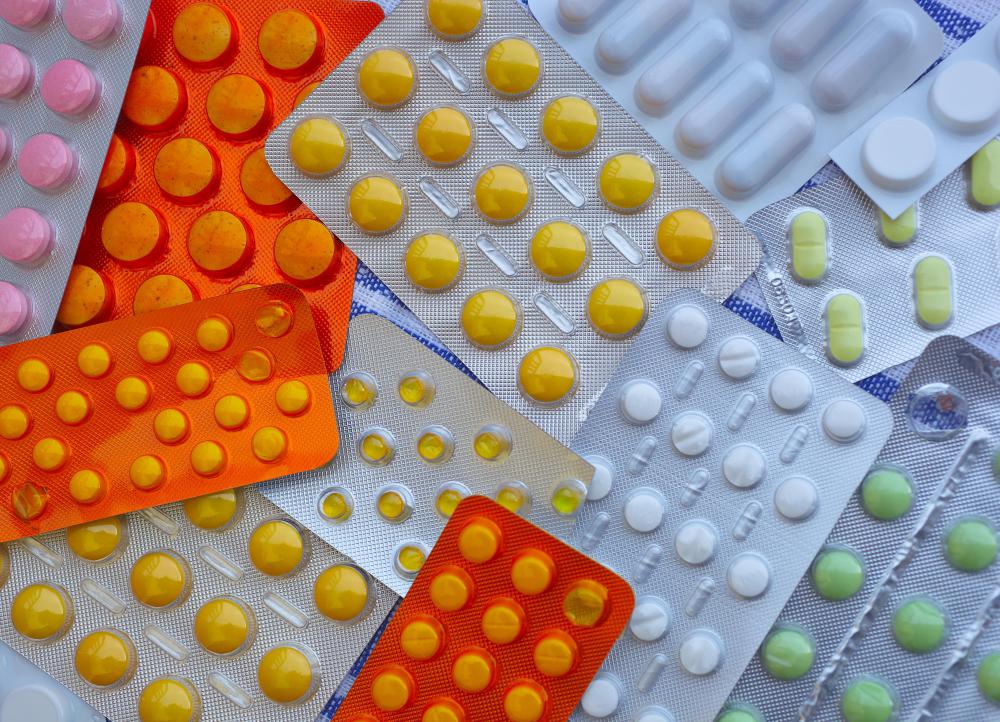At TheHealthBoard, we're committed to delivering accurate, trustworthy information. Our expert-authored content is rigorously fact-checked and sourced from credible authorities. Discover how we uphold the highest standards in providing you with reliable knowledge.
What is Bladder Diverticulitis?
Bladder diverticulitis, also called bladder diverticulum, is a condition that results in the formation of pouches in the bladder wall. Many people can have these pouches present and never know unless problems start to occur. Bladder diverticulum can be congenital or acquired.
Standard diverticulosis and bladder diverticulitis are similar, in that they both involve pouches. As one of the classifications of intestinal disorders, diverticulosis is limited to the intestines and does not include the bladder. The two conditions can be confused but are usually unrelated.

Congenital bladder diverticulitis is a condition that is present from birth and generally only results in one pouch being found. It means that the bladder wall is weak, and this weakness has allowed protrusions to occur. The protrusions are often discovered during childhood and do not need treatment if problems do not occur.
Acquired bladder diverticulitis most often occurs as a result of some type of obstruction, such as urethra scarring or an enlarged prostate. It can also be the result of bladder dysfunction and bladder surgery. Multiple pouches are typically found in the bladder wall of a patient with this condition.

In many instances, bladder diverticulitis does not create symptoms to announce its presence. Other coinciding issues often lead to a delayed diagnosis. Blood in the urine, difficulty urinating, and infections are problems that can occur and lead to the discovery of the pouches.
There are several tests that can be done to determine the presence of bladder diverticulitis. An ultrasound may initially be performed as part of the early diagnosis plan, which can show basic abnormalities in the bladder. A cystogram is an x-ray test that involves filling up the bladder with a contrast dye. Cytoscopy tests use a scope inserted through the urethra and into the bladder. Urodynamics involve using pressure to check for obstructions before performing other tests.

Bladder diverticulitis does not generally require treatment unless there are other problems occurring as a result of the pouches. Treatments will help resolve problems, such as bladder stones, reflux, or tumors, and help control the condition through symptom management.
While treating immediate problems is necessary, long term treatment may also be necessary. Many patients who suffer from symptoms that are ongoing will be treated with management medications that are used to help reduce the symptoms that are experienced. For example, if recurring infections occur, antibiotic therapy is often recommended. In some cases, surgery to remove the pouches can help prevent recurring issues.
AS FEATURED ON:
AS FEATURED ON:


















Discussion Comments
@feruze-- I would be interested in knowing that as well.
I would also like to know if a hysterectomy could cause diverticulitis in the bladder?
I had a hysterectomy last spring and during the surgery a diverticula on my bladder was ruptured, or at least that's what the surgeon has told me. I have had intense pain since then and have been diagnosed with several other diverticula on my bladder.
I've heard of damage being done to the bladder during hysterectomies. It's apparently not common but it does happen. I don't doubt that the surgery ruptured the diverticula. What I'm wondering is if the diverticula could be caused during the surgery and then also ruptured?
It seems unlikely, but before this incident, I didn't have any symptoms of diverticulitis at all, absolutely no bladder pain. Now I have a little pain all the time.
My grandmother had bladder removal surgery sometime back because of bladder cancer. The doctor had said at that time that the diverticulum of the bladder were tumorous and couldn't be removed at that stage. So they had to remove the entire bladder.
I've always wondered since her diagnosis and surgery if we could have avoided this if the diverticulum had been diagnosed and removed before cancer developed.
Is there any information out there about bladder diverticulum and cancer? Could it be possible for the diverticulum to be more prone to cancer? Or is it just equally affected since it is a part of the bladder?
I had surgery three months ago to remove several diverticulum in my bladder. I went to the doctor after experiencing burning and pain while urinating, and seeing blood in my urine. A week later, I was diagnosed with diverticulum in my bladder. We're not sure what caused it. They were probably there since a long time but might have gotten aggravated because of my enlarged prostate.
The surgery was not bad. I did continue to have pain while urinating for a month afterward but it slowly went away. I don't have the burning or pain anymore. I'm glad I went through with it. I had my prostate treatment and bladder treatment around the same time and my prostate is doing well too. Hopefully I won't have any more diverticulum pop up in the future.
Post your comments